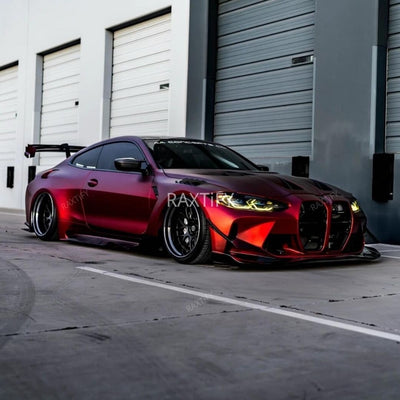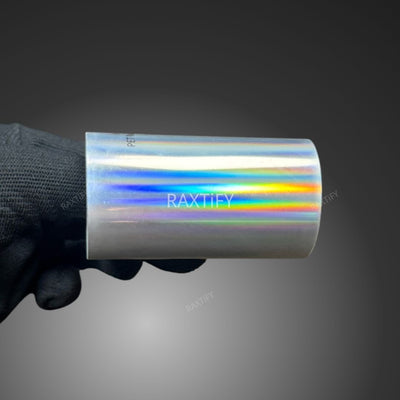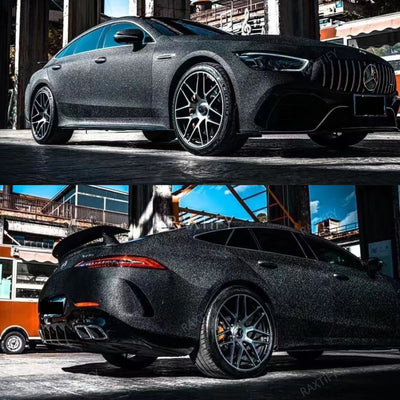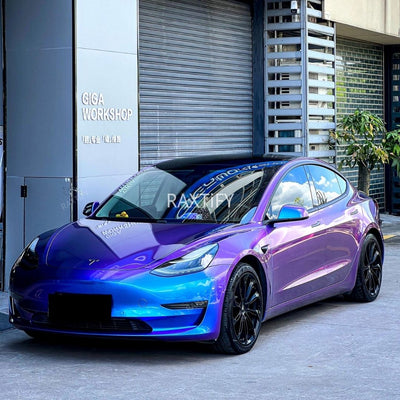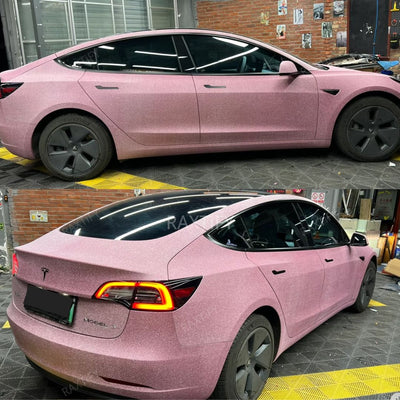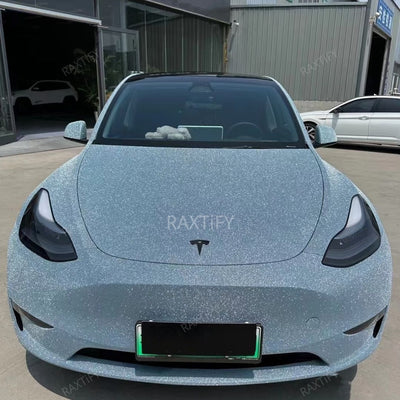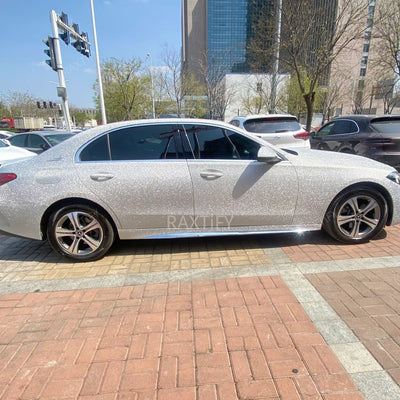
In the realm of automotive and property enhancements, window tinting has emerged as a popular choice for many. This technique involves the application of a thin, shaded film on the windows of not only vehicles but also homes and offices. It's a trend that's gaining momentum for its aesthetic and functional benefits. If you're considering window tinting but are uncertain about the costs and advantages, this article offers a detailed insight into car window tints.
Typically, the cost to tint the windows of a vehicle ranges from $100 to $900. This price variation depends on several factors including the quality of the tint material, the size of the vehicle, and the complexity of the installation process.
Various Vehicle Types and Their Window Tinting Prices
Window tinting prices can fluctuate based on the type of vehicle. Below is a table offering a general estimate.
| Type of Vehicle | Cost of Tint on Windows and Rear Windshield | Cost of Tint on the Sunroof |
|---|---|---|
| Coupe | S190 - $550 | S60 - $160 |
| Sedan | S190 - $550 | S60 - $160 Panoramic Sunroof $120 - $300 |
| SUV | $260 - $715 | S60 - $160 Panoramic Sunroof $120 - $300 |
| Truck | Standard Cab: $160 - $450 Extended Cab: S190 - $550 Crew Cab: $210 - $600 | S60 - $160 Panoramic Sunroof $120 - $300 |
| Van | $260 - $715 | S60 - $160 Panoramic Sunroof $120 - $300 |
| Tesla | Model 5: $400 - $600 Model X and Y: $450 - $715 Model 3: $850+ | $90 - $160 Panoramic Sunroof S200 - $300 |
Please remember, these are approximate values. Actual costs can vary based on the previously mentioned variables.
Factors That Determine The Cost Of Window Tints
The cost of installing window tints varies based on several key factors, making it important to understand what contributes to the overall expense. Here are the primary elements that determine the price:
-
Tint Material: The choice of tint material significantly influences the cost. Options range from the more budget-friendly dyed tints to the premium-priced ceramic coated tints. Carbon tint falls somewhere in the middle. The type of tint you select will directly impact the total cost.
-
Warranty Inclusions: Although warranties typically don't incur additional charges, they provide peace of mind by covering potential defects such as peeling, cracking, or bubbling. This can be a financial lifesaver in the long run, as it reduces the need for frequent replacements. Products with warranties often imply superior quality.
-
Quality of Tint Film: The selected brand and quality of the tint film also play a critical role. Opting for cheaper materials might be tempting but can adversely affect your vehicle. High-quality tints like ceramic or carbon are more durable and longer-lasting compared to dyed tints, offering better value through reduced maintenance and replacement needs.
-
Vehicle Specifics: The cost also depends on the vehicle's make and model, including the number of windows. Typically, cars might cost between $200 to $500, trucks around $200 to $600, and SUVs and vans may range from $250 to $700 for a complete tint job.
-
Window Characteristics: The design, shape, and size of the vehicle's windows are crucial in determining the price. Unique shapes or large windows, such as those in some Tesla models, require more time and materials, thus increasing the cost. Flat windows are generally cheaper to tint compared to curved ones, which need more expertise and equipment.
-
Professional Installation: DIY tinting is not advisable due to the skill involved and potential legal implications in some states. Professional installation costs vary, typically ranging from $100 to $900. Remember, investing in quality service is beneficial in the long term.
Why Choose Window Tinting? Your Ultimate Guide to Benefits
Have you ever pondered the real perks of window tinting for your vehicle? It's more than just an aesthetic upgrade; it's a practical choice that offers a multitude of advantages. Here's a breakdown of the key benefits:
Privacy and Security Boost
Window tints offer a significant privacy edge. With darker windows, it's harder for outsiders to glance into your car, substantially lowering the risk of theft. Valuables inside your vehicle remain out of sight. For those, particularly women, who often travel solo, this added layer of privacy can be a comforting factor during long journeys.
Road Safety Enhancement
On-road safety is a paramount concern. Tints contribute to this in two key ways. In case of an accident, the film holds shattered glass together, reducing injury risks. Additionally, tinting cuts down on glare from sunlight and headlights, enabling better visibility and reducing the chances of accidents.
Ultraviolet Ray Shield
A significant advantage of window tinting is its protection against harmful UV rays. Prolonged exposure to sunlight can lead to interior fading and damage. Tints act as a barrier, preserving your car's interior and offering a cooler, more comfortable driving environment.
Health Advantages
Consider the health implications. With reduced exposure to UV rays, you're safeguarding your skin and eyes. A cooler interior also means a more pleasant and healthier journey, especially in warmer climates.
Enhanced Fuel Economy
In an era of rising fuel prices, every bit of efficiency counts. Window tints keep your car's interior cooler, lessening the need for constant air conditioning. This reduction in AC usage translates to better fuel economy and less strain on your vehicle's systems, potentially lowering maintenance costs.
Window tinting is not just an aesthetic choice but a practical investment in your vehicle's functionality and your comfort. With these benefits in mind, it becomes clear why this modification is popular among discerning vehicle owners.
Exploring Various Window Tint Types and Their Costs
Window tints come in a range of types, each with its unique features and pricing. Here's a detailed look at different window tint options and the investment you'll need to make:
Dyed Window Tint
This tint type is created by adding a layer of dye to the film. It's a widespread and budget-friendly choice, known for its ease of application. Dyed window tints effectively block UV rays, reducing both heat and light penetration into your vehicle. These tints come in varying shades, from light to dark, allowing you to choose based on your preference. They are versatile, fitting various vehicle types, and generally range in cost from $100 to $400, varying with your vehicle's make and model.
Ceramic Window Tint
Regarded as a premium selection, ceramic window tint stands out for its clarity and exceptional heat rejection capabilities. It offers superior UV protection, helping maintain a cooler and more comfortable car interior. Although on the pricier side and somewhat challenging to install, ceramic tints justify their cost, typically ranging from $350 to $800.
Carbon Window Tint
Crafted from carbon-based materials, this tint is known for its unique non-reflective, matte finish, giving your car a sophisticated look. Carbon tints are designed to resist fading, bubbling, and cracking, thus offering longevity and durability. They come in various shades to comply with local tinting laws and preferences. The cost for carbon tints usually falls between $180 and $650.
Each type of window tint offers its advantages, from the cost-effective dyed tint to the high-end ceramic option. Your choice will depend on your budget, aesthetic preference, and the specific benefits you're looking for in a window tint.
Window Tint Solutions at RAXTiFY
At RAXTiFY, we specialize in offering high-grade Heat Rejection Window Tints, made with advanced nano-ceramic technology. These tints are not only exceptionally long-lasting and scratch-resistant but also excel in reducing heat. Available in various Visible Light Transmission (VLT) levels, each serves a unique purpose:
- 5% VLT: Our most exclusive shade, allowing only 5% of light to penetrate. This tint ensures maximum privacy and gives a sleek look from the outside. It's essential to verify state laws for compliance, as this shade might not be permissible everywhere. Prices start at $59 for a 5ft x 3.28ft roll, extending up to $699 for a 5ft x 98.42ft roll, with several sizes in between.
- 15% VLT: Ideal for temperature control and interior protection, this tint permits only 15% light transmission. Besides offering privacy and reducing glare, it enhances your vehicle's contemporary aesthetic and is scratch-resistant. Pricing ranges from $59 to $699, depending on the chosen size.
- 35% VLT: This tint is a great middle ground, dark enough for privacy yet compliant with most state laws. Enjoy the benefits of tinting without legal worries. Prices vary from $59 to $699, based on roll size.
- 50% VLT: For safer night driving, a 50% tint is optimal. It blocks half the light, reducing glare and cooling your vehicle, while maintaining a balance between privacy and visibility. Available from $59 to $699.
- 70% VLT: Our lightest tint, blocking 30% of light, is perfect for subtle shading. It offers significant UV protection, enhancing your vehicle's longevity. Priced between $59 and $699, it's ideal for a touch of privacy and protection.
At RAXTiFY, we understand the importance of quality, style, and legal compliance in window tints. Choose the perfect tint to suit your needs and elevate your vehicle's appearance and functionality.
Frequently Asked Questions
Q. What is the ideal window tint percentage for most vehicles?
A popular choice among drivers is the 50% window tint. This level of tinting is typically legal in numerous states, striking a balance between the benefits of tinting and minimal drawbacks. It enhances safety and comfort during driving, which is why it's a widely favored option.
Q. Is it possible to apply window tint by myself?
Applying window tint films can be challenging, requiring specific skills and precision. For optimal results and to avoid immediate issues, it’s recommended to seek a professional's help. They ensure a durable and correctly applied tint, avoiding common mistakes made in DIY attempts.
Q. What is the lifespan of window tints?
Generally, window tints can last up to 5 years. Over time, they may begin to fade, but replacing them is a straightforward process. Regular check-ups can help maintain their appearance and effectiveness.
Final Words
Adding window tint to your vehicle is more than a style statement; it's a practical upgrade for protection against harsh UV rays. Whether you seek style enhancement or UV protection, window tints are a smart choice. At RAXTiFY, we provide top-quality window tints in various VLT percentages to suit your needs.







